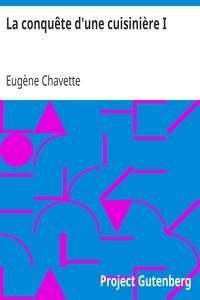|
|
Read this ebook for free! No credit card needed, absolutely nothing to pay.Words: 9701 in 3 pages
This is an ebook sharing website. You can read the uploaded ebooks for free here. No credit cards needed, nothing to pay. If you want to own a digital copy of the ebook, or want to read offline with your favorite ebook-reader, then you can choose to buy and download the ebook. But it is not only to comparatively independent creation that we must look. The dynamic power of Horace is to be found at work even in the translation of the poet. The fact that he has had more translators than any other poet, ancient or modern, is itself an evidence of inspirational quality, but a greater proof lies in the variety and character of his translators and the quality of their achievement. A list of those who have felt in this way the stirrings of the Horatian spirit would include the names not only of many great men of letters, but of many great men of affairs, whose successes are to be counted among examples of genuine inspiration. Translation at its best is not mere craftsmanship, but creation,--in Roscommon's lines, To translate in this manner is beyond all doubt to deserve the name of poet. But let the attempt be made to avoid the ponderous movement and excessive sobriety of Milton, and to communicate the Horatian airiness, and there is a loss in conciseness and reserve: But there are those who demand of poetry a usefulness more easily measurable than that of recreation. In their opinion, it is improvement rather than pleasure which is the end of art, or at least improvement as well as pleasure. In this, indeed, the poet himself is inclined to agree: "He who mingles the useful with the pleasant by delighting and likewise improving the reader, will get every vote." Let us look for these more concrete results, and see how Horace the person still lives in the character of men, as well as Horace the poet in the character of literature. And he is more than merely personal. He is sincere and unreserved. Were he otherwise, the delight of intimate acquaintance with him would be impossible. It is the real Horace whom we meet,--not a person on the literary stage, with buskins, pallium, and mask. Horace holds the mirror up to himself; rather, not to himself, but to nature in himself. Every side of his personality appears: the artist, and the man; the formalist, and the skeptic; the spectator, and the critic; the gentleman in society, and the son of the collector; the landlord of five hearths, and the poet at court; the stern moralist, and the occasional voluptuary; the vagabond, and the conventionalist. He is independent and unhampered in his expression. He has no exalted social position to maintain, and blushes neither for parentage nor companions. His philosophy is not School-made, and the fear of inconsistency never haunts him. His religion requires no subscription to dogma; he does not even take the trouble to define it. Politically, his duties have come to be also his desires. He will accept the favors of the Emperor and his ministers if they do not compromise his liberty or happiness. If they withdraw their gifts, he knows how to do without them, because he has already done without them. He conceals nothing, pretends to nothing, makes no excuses, suffers from no self-consciousness, exercises no reserve. There are few expressions of self in all literature so spontaneous and so complete. Horace has left us a portrait of his soul much more perfect than that of his person. It is a truthful portrait, with both shadow and light. And there is a corollary to Horace's frankness that constitutes another element in the charm of his personality. His very unreserve is the proof of an open and kindly heart. To call him a satirist at all is to necessitate his own definition of satire, "smilingly to tell the truth." At least in his riper work, there is no trace of bitterness. He laughs with some purpose and to some purpose, but his laughter is not sardonic. Sane judgment and generous experience tell him that the foibles of mankind are his own as well as theirs, and are not to be changed by so slight a means as a railing tongue. He reflects that what in himself has produced no very disastrous results may without great danger be forgiven also in them. It is this intimate and warming quality in Horace that prompts Hagedorn to call him "my friend, my teacher, my companion," and to take the poet with him on country walks as if he were a living person: Horaz, mein Freund, mein Lehrer, mein Begleiter, Wir gehen aufs Land. Die Tage sind so heiter; If we were to take detailed account of certain qualities missed in Horace by the modern reader, we should be even more deeply convinced of his power of personal attraction. He is not a Christian poet, but a pagan. Faith in immortality and Providence, penitence and penance, and humanitarian sentiment, are hardly to be found in his pages. He is sometimes too unrestrained in expression. The unsympathetic or unintelligent critic might charge him with being commonplace. We are better able now to appreciate the dynamic power of Horace the person. We may see it at work in the fostering of friendly affection, in the deepening of love for favorite spots of earth, in the encouragement of righteous purpose, in the true judging of life's values. And what numbers of men have taken to their hearts from the same ode the famous Free books android app tbrJar TBR JAR Read Free books online gutenberg More posts by @FreeBooks
: La conquête d'une cuisinière I Seul contre trois belles-mères by Chavette Eug Ne - French fiction 19th century FR Littérature@FreeBooksTue 06 Jun, 2023
|
Terms of Use Stock Market News! © gutenberg.org.in2025 All Rights reserved.






